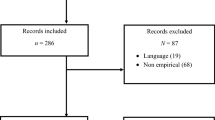Abstract
The paper deals with the phenomenon of “soft” skills in the aspect of prevention and correction of professional burnout in terms of polytechnic education specialists. Burnout is a problem that must be solved for both current and future needs to help those who are already engaged in professional activities, as well as future professionals, both in engineering and teaching. The relevance of the study determines its subject matter – a professional burnout among teachers of technical universities and burnout prerequisites among students. The paper focuses on the individual, internal resources and personal characteristics as a means of combating the burnout syndrome. The combination of factors selected for the analysis has not been studied previously due to burnout. The MBI methodology, Emotional Intelligence and Decision Making scales were used in the work. Data processing was carried out with SPSS 27 software and R-studio.
The research was carried out based on a sample group of 59 teachers and 78 students working/studying in technical universities of St. Petersburg and representing both engineering and humanities. The empirical data of the study include description of the sample group from the point of view of the level of burnout; correlation analysis of indicators, which determines the relationship between the declared factors and burnout constructs, as well as between all the variables; factor analysis of the obtained data.
Access this chapter
Tax calculation will be finalised at checkout
Purchases are for personal use only
Similar content being viewed by others
References
Glukhov, V.V., Vasetskaya, N.O.: Improving the teaching quality with a smart-education system. In: Proceedings of the 2017 IEEE VI Forum Strategic Partnership of Universities and Enterprises of Hi-Tech Branches (Science. Education. Innovations) (SPUE), pp. 17–21. IEEE, New York (2017)
Klochkova, E.S., Bolsunovskaya, M.V., Shirokova, S.V.: The significance of humanities for engineering education. In: Proceedings of the 2018 XVII Russian Scientific and Practical Conference on Planning and Teaching Engineering Staff for the Industrial and Economic Complex of the Region (PTES), pp. 265–268. IEEE, New York (2018)
Kruglikov, V.N.: Experiential methods of studying theory at engineering universities. Educ. Sci. J. 20, 50–69 (2018)
Necheukhina, N.S., Matveeva, V.S., Babkin, I.A., Makarova, E.N.: Modern approaches to the educational process aimed at improving the quality of highly qualified personnel training. In: Proceedings of the 2017 IEEE VI Forum Strategic Partnership of Universities and Enterprises of Hi-Tech Branches (Science. Education. Innovations) (SPUE), pp. 192–195. IEEE, New York (2017)
Rudskoy, A.I., Borovkov, A.I., Romanov, P.I.: Obshcheprofessional’nye kompetencii sovremennogo rossijskogo inzhenera (General professional competence of a modern Russian engineer). Vysshee Obrazovanie v Rossii 27(1), 5–18 (2018). (in Russian)
Alarcon, G.M., Edwards, J.M., Menke, L.E.: Student burnout and engagement: a test of the conservation of resources theory. J. Psychol. 145, 211–227 (2011)
Stallman, H.M.: Psychological distress in university students: a comparison with general population data. Aust. Psychol. 45, 249–257 (2010)
Lin, S.H., Huang, Y.C.: Life stress and academic burnout. Active Learn. High. Educ. 15, 77–90 (2014)
Byrne, B.M.: The maslach burnout inventory: validating factorial structure and invariance across intermediate, secondary, and university educators. Multivar. Behav. Res. 26(4), 583–605 (1991)
Adams, E.: Vocational teacher stress and internal characteristics. J. Vocat. Tech. Educ. 16(1), 7–22 (1999)
Maslach, C., Leiter, M.P.: Understanding the burnout experience: recent research and its implications for psychiatry. World Psychiatry 15, 103–111 (2016)
Maslach, C., Schaufeli, W.B.: Historical and conceptual development of burnout. In: Maslach, C., Schaufeli, W.B., Marek, T. (eds.) Professional Burnout: Recent Developments in Theory and Research, pp. 1–16. Taylor & Francis, Washington (1993)
Sunbul, A.M.: An analysis of relations among locus of control, burnout and job satisfaction in Turkish high school teachers. Aust. J. Educ. 47(1), 58–65 (2003)
Raitskaya, L.K., Tikhonova, E.V.: Soft Skills v predstavlenii prepodavatelej i studentov rossijskih universitetov v kontekste mirovogo opyta (Perceptions of soft skills by Russia’s university lecturers and students in the context of the world experience). RUDN J. Psychol. Pedagogics 15(3), 350–363 (2018). (in Russian)
Yarkova, T.A., Cherkasova, I.I.: Formirovanie gibkih navykov u studentov v usloviyah realizacii professional’nogo standarta pedagoga (Formation of flexible skills among students in the conditions of implementation of the professional standard of the teacher). Vestnik Tyumen State Univ. Humanit. Res. Humanit. 2(4), 222–231 (2016). (in Russian)
Gold, Y., Roth, R.A.: Teachers Managing Stress and Preventing Burnout: The Professional Health Solution. Falmer Press, London (1993)
Alarcon, G.M., Edwards, J.M., Menke, L.E.: Student burnout and engagement: a test of the conservation of resources theory. J. Psychol.: Interdiscip. Appl. 145(3), 211–227 (2011)
Portoghese, I., Leiter, M.P., Maslach, C., Galletta, M., Porru, F., D’Aloja, E., Finco, G., Campagna, M.: Measuring burnout among university students: factorial validity, invariance, and latent profiles of the Italian version of the Maslach Burnout Inventory Student Survey (MBI-SS). Front. Psychol. (2018), https://www.frontiersin.org/articles/10.3389/fpsyg.2018.02105/full. Accessed 20 Jan 2020
Stallman, H.M., Hurst, C.P.: The university stress scale: measuring domains and extent of stress in university students. Aust. Psychol. 51, 128–134 (2016)
Maslach, C., Jackson, S.E., Leiter, M.P.: Maslach Burnout Inventory Manual, 4th edn. Mind Garden, Menlo Park (2017)
Schwab, R.L., Jackson, S.E., Schuler, R.S.: Educator burnout: sources and consequences. Educ. Res. Q. 10(3), 14–30 (1986)
Davies, M., Stankov, L., Roberts, R.D.: Emotional intelligence: in search of an elusive construct. J. Personal. Soc. Psychol. 75, 989–1015 (1998)
Dulewicz, V., Higgs, M.: Emotional intelligence – a review and evaluation study. J. Manag. Psychol. 15(4), 341–372 (2000)
Kaufhold, J.A., Johnson, L.R.: The analysis of the emotional intelligence skills and potential problem areas of elementary educators. Education 125(4), 615–628 (2005)
Author information
Authors and Affiliations
Corresponding author
Editor information
Editors and Affiliations
Rights and permissions
Copyright information
© 2020 Springer Nature Switzerland AG
About this paper
Cite this paper
Valieva, F. (2020). Soft Skills vs Professional Burnout: The Case of Technical Universities. In: Anikina, Z. (eds) Integrating Engineering Education and Humanities for Global Intercultural Perspectives. IEEHGIP 2022. Lecture Notes in Networks and Systems, vol 131. Springer, Cham. https://doi.org/10.1007/978-3-030-47415-7_76
Download citation
DOI: https://doi.org/10.1007/978-3-030-47415-7_76
Published:
Publisher Name: Springer, Cham
Print ISBN: 978-3-030-47414-0
Online ISBN: 978-3-030-47415-7
eBook Packages: Intelligent Technologies and RoboticsIntelligent Technologies and Robotics (R0)




